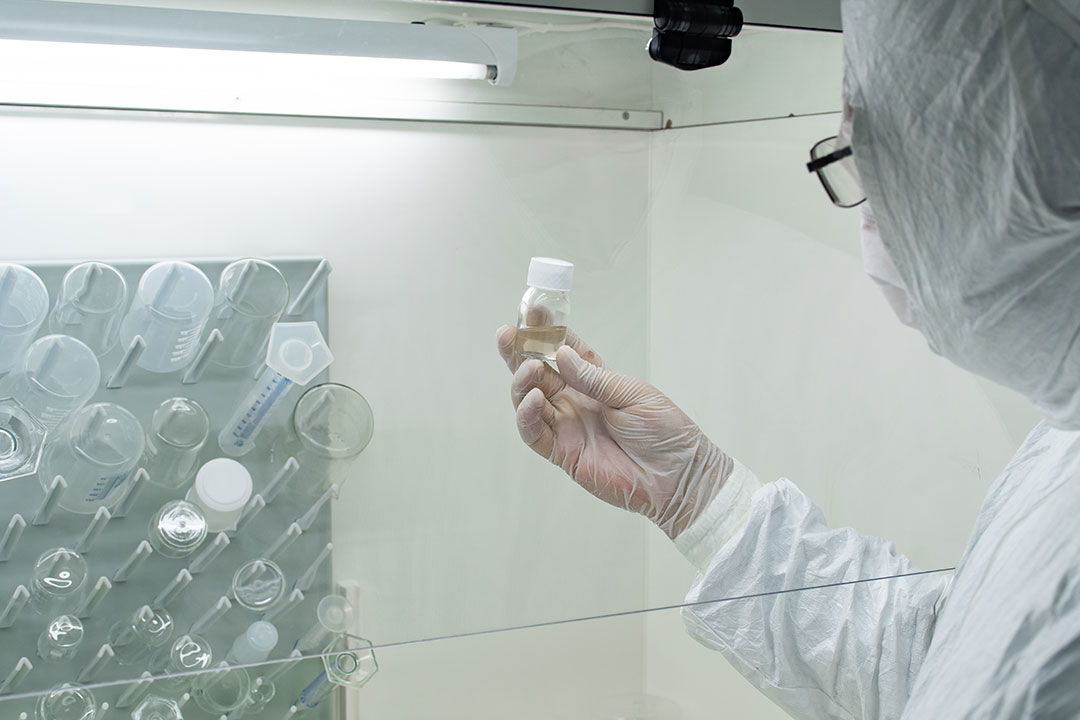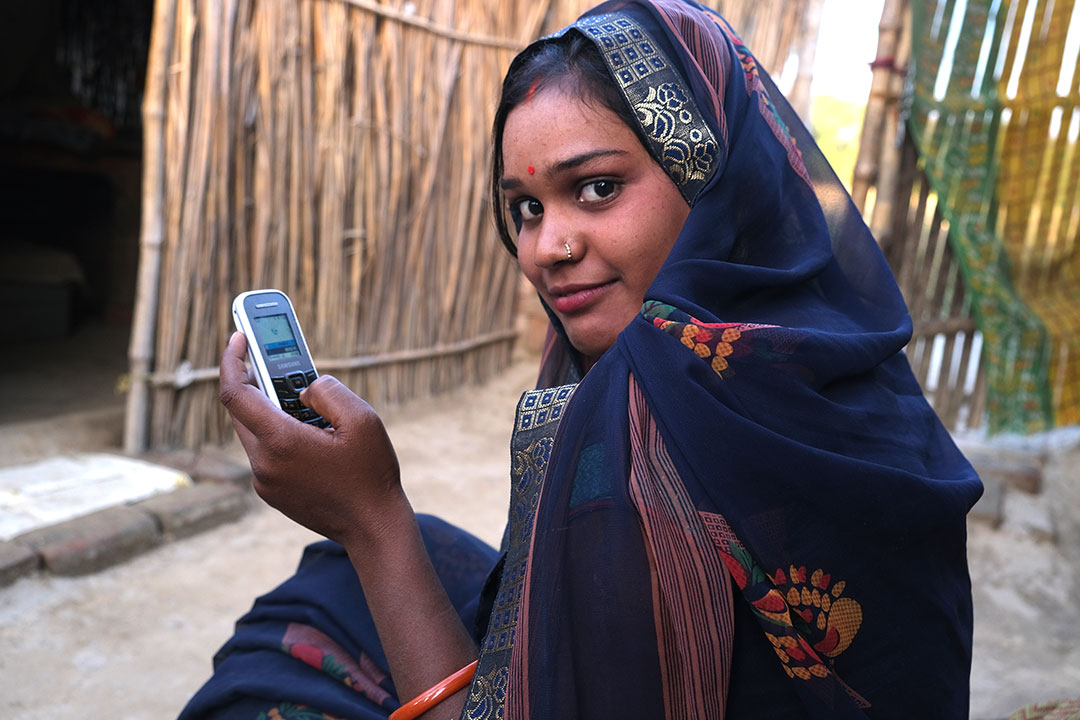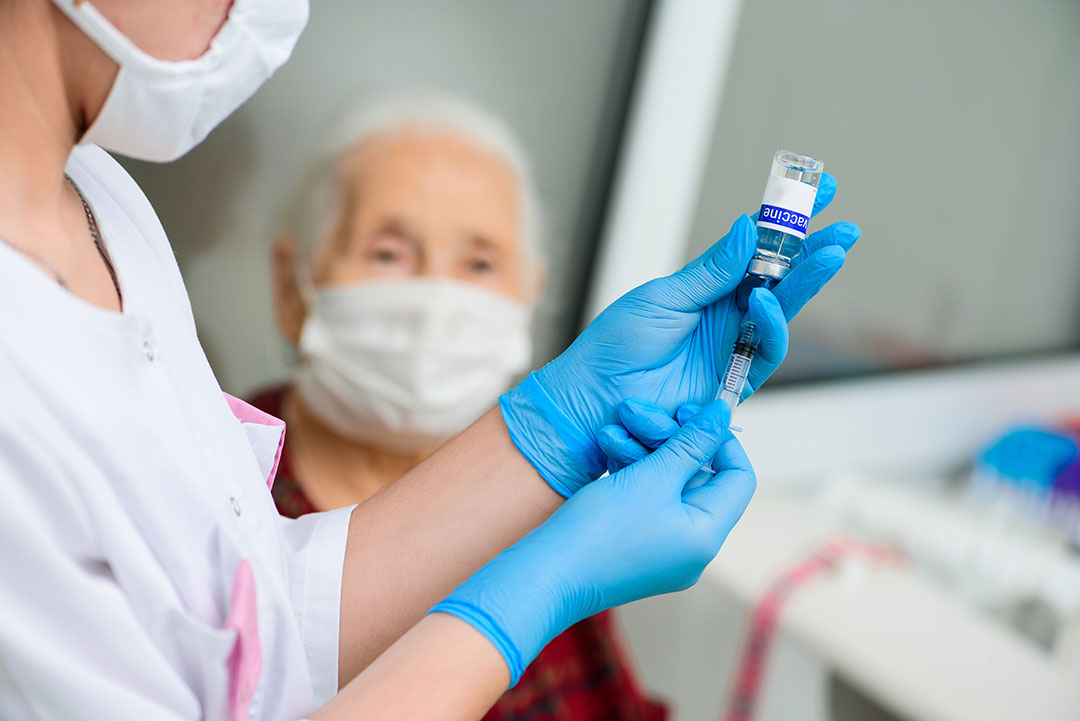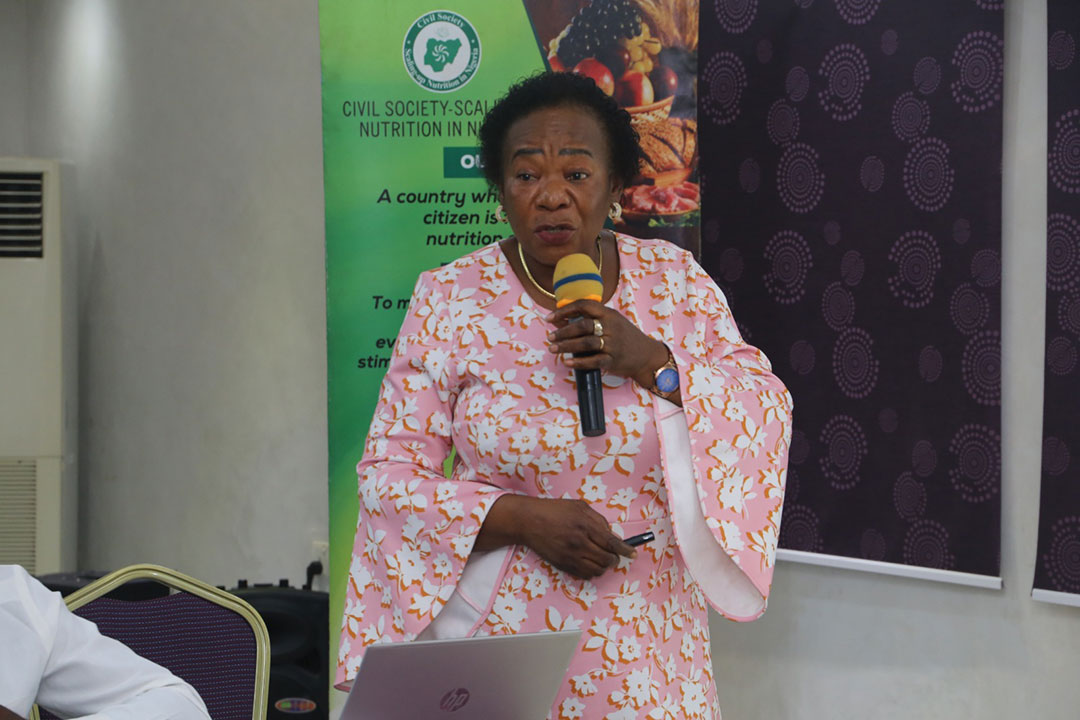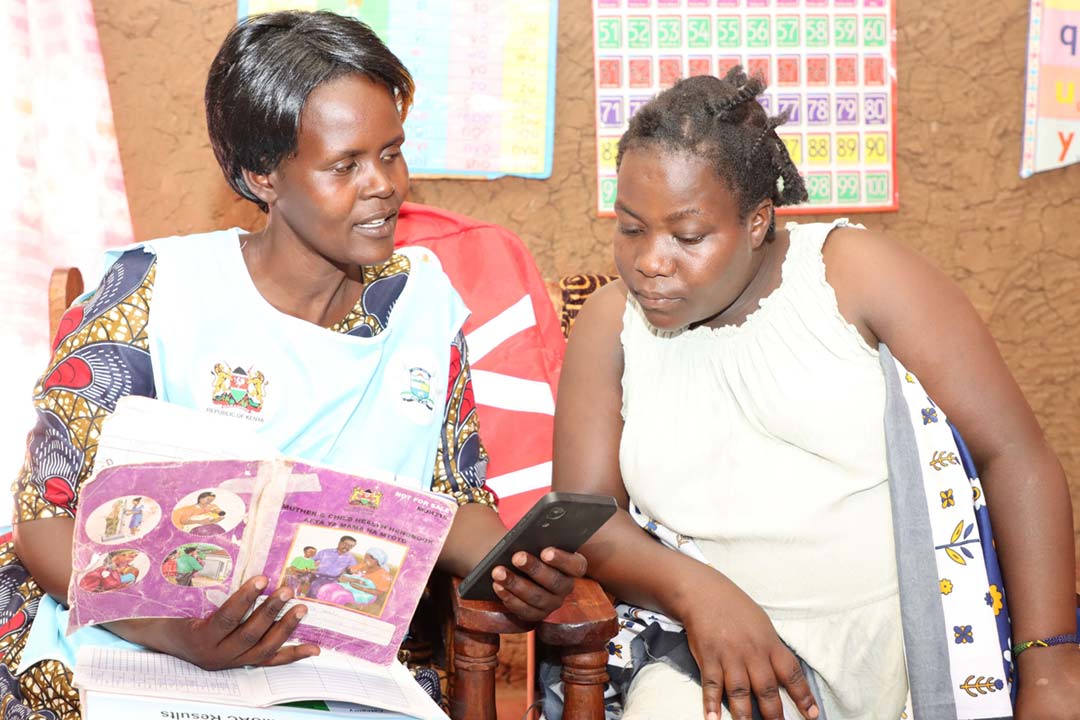In the dark: three blind Nigerians tell their stories
Anu Adewale, Kehinde Adegboye and Taiwo Talabi learned the hard way that vaccine-preventable diseases can rob you of your eyesight.
- 3 October 2023
- 7 min read
- by Rebecca Ejifoma

It was 18:13 on a Saturday in mid-September. Lagos, the most populous city in Africa, was submerged after a cloudburst. Thirty-three-year-old Anu Adewale stood outside her residence in Iyana-Ipaja – also water-logged. Days like this are especially challenging to navigate for Adewale, who lost her eyesight as a child.
“I was sick at [age] 10. I woke up one morning and couldn’t see well.”
– Anu Adewale
Anu Adewale – blinded by malaria and typhoid
“I was sick at [age] 10. I woke up one morning and couldn’t see well,” she recalls. “My parents took me to different hospitals in Ogun State, including University College Hospital (UCH) Ibadan in Oyo state, and St Mary Agowoye, Ijebu Ogun.”
The doctors’ diagnosis sounded strange to her parents: they said that malaria and typhoid had affected her sight.
In fact, there are many infectious diseases with the potential to cause blindness – either as a result of damage to the structures of the eye or as neurologic deficits linked to the infection. For Adewale, that knowledge came too late.
“I could see a bit after the doctors treated me, before I went completely blind. I was warned not to do eye surgery as it would affect my brain,” she says.
The World Health Organization (WHO) says more than 2.2 billion people are visually impaired globally, and in at least one billion of those cases, visual degeneration was preventable. That’s true of all cases of blindness connected to vaccine-preventable illnesses.
Estimates of blindness in Nigeria vary. In 2022, the Nigerian Optometric Association reported that nearly seven million Nigerians were blind and that 50 million people in the country had some form of visual disability. Dr Joshua Ibenu, a public health expert who works with Sightsavers Nigeria, told the national news publication Punch this year that about 0.78% of Nigerians live with some form of blindness.
Being blind in Nigeria is “not easy at all. My neighbours discriminate against me. I feel bad. My children help me to the bathroom and toilet because it's in the backyard,” says Adewale. She adds, “When I see my children around me, I think there is hope for me.”
"I had measles in 2009, which affected my eyes. I was 20, married, and had a child one and a half years old. My husband left me."
– Kehinde Adegboye
Vaccines can help
Experts have emphasised the need for every child in Nigeria to get vaccinated against common childhood illnesses to remain safe from death and lasting disability.
Measles, the world’s most contagious vaccine-preventable virus, is particularly associated with blindness. “We know that vaccines work not only to prevent infections but also to reduce the likelihood of side effects of these infections,” says Dr Eduardo Celades, Chief of Health for UNICEF Nigeria. “For example, some of the most common complications of measles are diarrhoea, ear infection, pneumonia and even blindness.”
Have you read?
As of 2022, according to WHO and UNICEF figures, just 38% of Nigeria is immunised with the recommended two doses of measles vaccine. That’s risky: measles spreads fast, attacks the immune system, leaving patients prey to other deadly infections, and can send children with low Vitamin A levels into catastrophic Vitamin A deficiency, one result of which can be blindness. To head that off, Dr Celades explains, vaccination programmes such as Nigeria’s administer both the measles vaccine and supplemental Vitamin A.
“This year, the Federal Minister of Health and the National Primary Health Care Development Agency (NPHCDA) will conduct measles vaccination campaigns in 13 states. We are looking to work with that as UNICEF in this campaign,” Dr Celades notes.
Adewale echoes Celades’ counsel. “Vaccines are good. I will tell parents to vaccinate their children. I take mine to the hospital for immunisation.”
Kehinde Adegboye – blinded by measles
Kehinde Adegboye, aged 35, is a bold and cheerful woman who understands the meaning of those warnings all too well. She lost her eyesight to measles a decade and a half ago. “I just finished secondary school in Osun state when I went blind,” she recalls.
“I had measles in 2009, which affected my eyes. I was 20, married, and had a child one and a half years old. My husband left me. My mum took me to many hospitals, like UCH. In 2010, I had the first surgery on my left eye – the cornea. The surgeon directed us to an ophthalmologist. I had an operation on the second eye, but my mum could not afford the 40,000 naira weekly drugs. I became blind.”
"I was 21 and five months pregnant when I was sick in Badagry, Lagos. It was a minor sickness. One morning, I woke up, and all I saw was pure white."
– Taiwo Talabi
In 2014, Adegboye attended the Vocational Training Centre for the Blind at Oshodi, Lagos. “I didn”t want to depend on anyone. But since I started selling [crafts] in 2015, people think [people like me] are begging. The Instructors taught us to use the guide cane, cook, bathe, apply make-up, look and smell good, charge phones, and use cooking gas. I do my craft business at home and take it around. I fend for my family.
“My mum didn’t restrict me when I became blind. The vocational school helped me realise being blind is not the end of the world; challenges make us stronger. The opportunities I get I wouldn’t get if I were sighted; when I go to banks or on a bus, I get preferential treatment. I didn’t let the fact that my second husband abandoned us weigh me down.”
“Vaccines are good. I take my three-year-old son for monthly immunisation,” she said. “I don't know if my mother completed my immunisation. But it is good to complete the vaccine to avoid issues in the future,” she adds.
Taiwo Talabi – blinded by an unknown “minor” illness
For 38-year-old Taiwo Talabi, life has not been easy. But her husband, who is also visually impaired, has helped her.
“I was 21 and five months pregnant when I was sick in Badagry, Lagos. It was a minor sickness. One morning, I woke up, and all I saw was pure white. My parents took me to the hospital. The doctors couldn’t diagnose it; I became blind. So, my husband left me and our unborn child. In 2015, I went to the Vocational Training School for the Blind, Oshodi. My current husband and I met there. We are both blind, but we do our business together.”
Doctors talk prevention
Prof Francis Faduyile, a consultant pathologist at the Lagos State University College of Medicine Teaching Hospital, confirms that measles infection can lead to a loss of vision: “If not properly taken care of, it can cause some scar that causes blindness.”
But reliable protection exists. “Ensure the children receive immunisation against measles. Those who have measles should be treated properly. Get proper immunisation for newborns to guard against measles and proper vitamins and minerals to boost the child’s sight,” he recommends.
“Vitamin A deficiencies can cause some forms of blindness. Take your child to an ophthalmologist when they complain of eye problems; don’t listen to people with little knowledge. If you see a child with a white patch on the eye, see a doctor.”
Dr Bunmi Bodunde, Consultant Paediatric Ophthalmologist at the Olabisi Onabanjo University Teaching Hospital, Sagamu, Ogun, gives health education talks to parents, pregnant women, mothers of infants and children.
“If you notice any white speck in the eye, watering, red, or unusually big eyes, see an ophthalmologist. Vaccinate girls ages 10 to 15 against rubella,” she says. Congenital rubella syndrome occurs when a pregnant woman contracts rubella, particularly in the first trimester and her baby suffers visual deficits as a result. “Give MMR vaccine for mumps, measles, and rubella to children age one,” she adds. Nigeria’s routine immunisation programme calls for vaccination with a first dose of measles-containing vaccine at nine months, and a second dose at 15 months. “A policy should ensure all children are screened during immunisation and at school entries,” she adds.
Eye doctors agree: one of the major risks to children’s vision is the application of misguided and non-scientific remedies for inflammation or soreness. “Stop putting battery or salt water, onion, breast milk, and urine in the eyes to cure Apollo (conjunctivitis). The urine could be infected and harm the eyes. See an ophthalmologist or a general practitioner. During immunisation, do an ocular examination on the child. Let’s prevent trauma by educating the people,” says Bodunde.
More from Rebecca Ejifoma
Recommended for you
